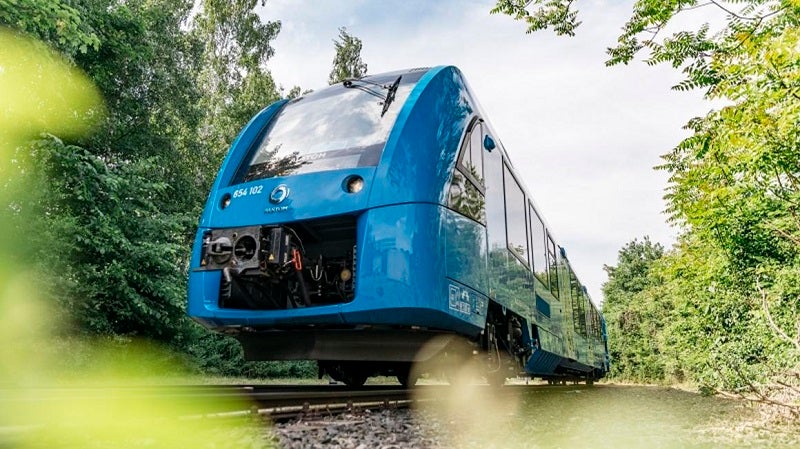
Alstom is all set to test the world’s first passenger train, Coradia iLint, which is powered by hydrogen fuel cells, for the first time in the Netherlands.
Hydrogen fuel cells produce electrical power for traction.
The company has signed an agreement with the Province of Groningen, local operator Arriva, Dutch company ProRail and energy firm Engie for the pilot project.
During the first quarter of next year, the testing of the Coradia iLint train will be performed on the track between Groningen and Leeuwarden at up to 140km/h for two weeks.
The testing is aimed at demonstrating that hydrogen fuel cell technology is an appropriate way to achieve zero-emission rail traffic on non-electrified lines in the Netherlands.
No diesel trains are currently running in the country.
Alstom Benelux managing director Bernard Belvaux said: “Alstom is committed to developing and implementing mobility solutions that permit not only the emergence of fully sustainable transport systems but also help drive the broader energy transition.
“We look forward to demonstrating what has already been proven in Germany, that hydrogen represents a highly suitable way forward in both cases.”
The emission-free Coradia iLint train emits only water and steam at the time of operation.
Railway operators and regional authorities who look to replace diesel fleets for operation on non-electrified lines find it as a clean alternative.
The railway network in the Netherlands has about 1,000km of non-electrified line.
Alstom unveiled the Coradia iLint train, which operates with a decreased level of noise, in September 2016.
At that time, the company offered a complete package that comprised the train and maintenance services, and the hydrogen infrastructure, to make its deployment simple for operators.



